News
-
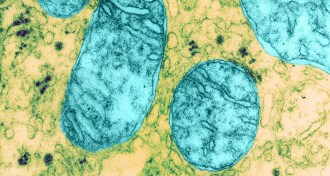 Genetics
GeneticsGenetic editing can delete deleterious mitochondria
A new technique slates mutant mitochondria for destruction.
-
 Neuroscience
NeuroscienceCatching Zs may snag memories, too
Flies genetically destined to be forgetful could boost their memory with sleep.
-
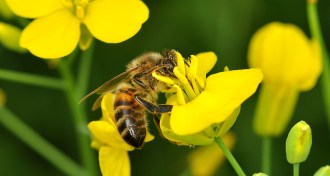 Animals
AnimalsBees may like neonicotinoids, but some may be harmed
Two high-profile tests raise worries that bees can’t avoid neonicotinoid pesticides and that wild species are at special risk.
By Susan Milius -
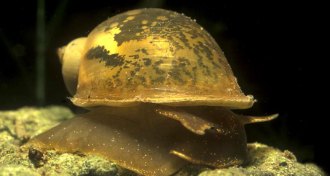 Life
LifeBolder snails grow stronger shells
Bold snails have tougher shells than shy snails. Understanding what drives snails to develop such differences is a bit of a challenge.
-
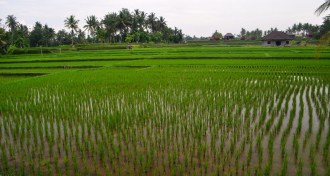 Environment
EnvironmentNatural acids in soil could protect rice from toxic nanoparticles
A common component of dirt makes toxic copper oxide nanoparticles less harmful to rice plants.
By Beth Mole -
 Neuroscience
NeuroscienceBeing watched can boost productivity
In the company of another, a monkey steps up production on a simple job.
-
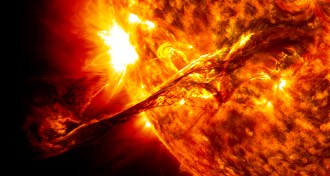 Astronomy
AstronomyX-rays offer early warning for solar flares
X-rays shot out by the sun foretell the intensity of an upcoming solar flare, new research suggests.
-
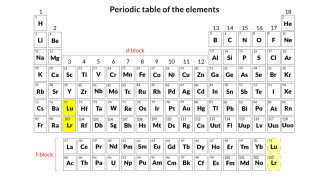 Chemistry
ChemistryNew data on synthetic element trigger rethink of periodic table
New data on lawrencium, element 103, trigger rethink of periodic table.
By Beth Mole -
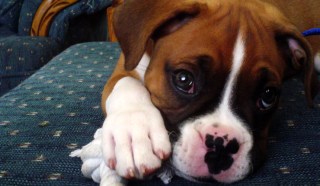 Animals
AnimalsGazing deeply into your dog’s eyes unleashes chemical attraction
Dogs and people gazing into each other’s eyes give each other a bond-strengthening rush of oxytocin.
By Susan Milius -
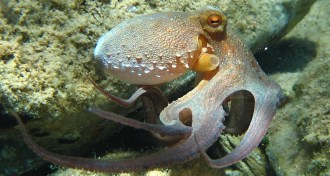 Life
LifeOctopuses move with uncoordinated arms
An octopus crawls unlike any other animal. Mimicking the cephalopod’s control over its movements may lead to more agile robots.
-
 Health & Medicine
Health & MedicineSame mutations can show up in tumors, healthy tissues
Analyzing samples of healthy and tumor tissues could pinpoint which mutations are driving cancer and help develop better-targeted treatments.
By Nathan Seppa -
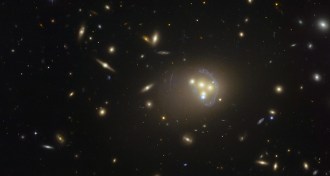 Astronomy
AstronomyGalactic split provides clue to dark matter mystery
An oddly divided galaxy may provide the first evidence that dark matter particles interact through a force other than gravity.
By Andrew Grant